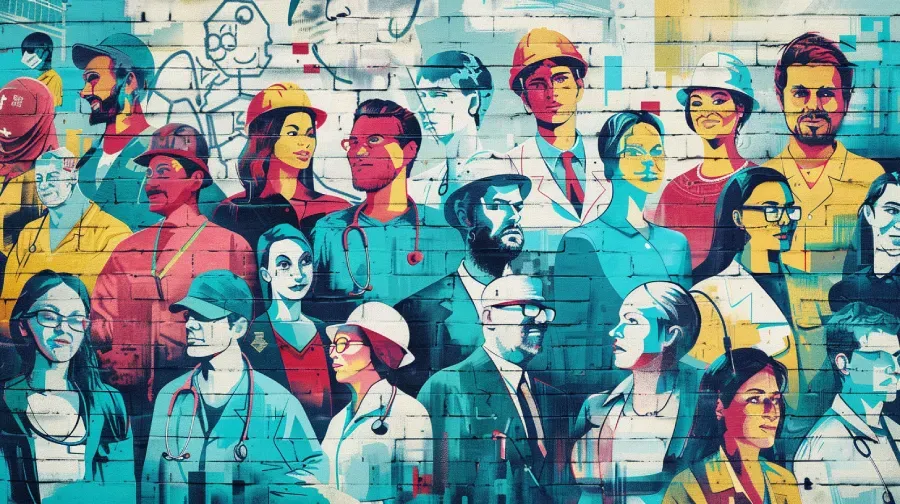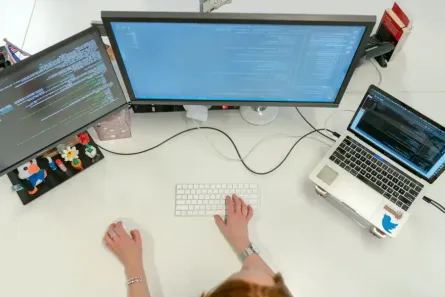How to find the right career
- 03 Jan, 2023

In about six months time, lots of students will need to make one of the first most important decisions in their life: what career to study. The ones finishing high-school have kind of decided which path to choose (STEM, arts, economics, etc.) but the final choice will be taken in the middle of the year.
This is the case of my little cousin, who is stressed for not having a clear picture on what to do next year. And, to be honest, I don’t blame him. With the rise of artificial intelligence, it’s getting more and more difficult to find the right career, so I shared a story about ‘safe paths’.
The ‘safe paths’
Most of us seek out these beaten paths, motivated by the comforting illusion of safety. But is ‘safe’ truly as secure as we believe? In my perspective, ‘safe’ is the achievement of desired outcomes with minimal risks. But does the conventional definition of ‘safe’ truly align with ours?
The typical example of this is not leaving your house just in case something bad happens to you. Of course, you don’t want to have any bad experience (minimal risk) but, are you willing to sacrifice your freedom and not experience the wonders of the world? I don’t think that’s the outcome anybody wants.
Following the same argument, one could think of these conventional ‘safe paths’ that a person might take, driven by society’s predefined ideas of success: doctors, lawyers, consultants, corporate managers, bankers, etc. While these professions offer an illusion of prestige and prosperity (nice outcomes) they might come with rigid, boring routines and a lack of creative fulfillment.
Let’s take the doctor profession for example. For some people it might be the best job in the world, but for others it might be a boring, repetitive and sacrificed career. Are you willing to spend around 10 years studying to become a doctor? Take into account you’ll spend plenty of hours sitting in a room, seeing patients and prescribing drugs every day..Is it really like that? You don’t really know until you shadow a doctor in their daily tasks.
Similarly, high-stakes professions like banking and consulting, which initially seemed promising financially speaking, might reveal a clear downside: grueling hours and little personal fulfillment. One of my friend’s fathers, a top consultant, exemplified this. His time with his family was sacrificed at the altar of success, barely seeing his own children during the first 18 years of their life. His situation reiterates my belief: a path is not ‘safe’ if it does not lead to your desired outcomes.
Of course there are outliers in every profession. We’ve all seen these cases but, is it worth betting on being the outlier in these conventional ‘safe paths’, when the chances are stacked against you? Let’s be honest…I don’t think it’s the wisest decision.
There are several videos on YouTube where people are interviewed and tell about a standard day in their life, like the channel of Gabriel. Personally, I think this is very nice for future generations. Watching this kind of videos makes you realize how much you don’t know about the professions of the world, from freelance ghostwriters to business owners.

And should we be persuaded by the argument that 99% of businesses fail, casting entrepreneurship into the realm of risk? Entrepreneurship, much like life itself, isn’t without risk. Yes, individual ideas may fail, but determined entrepreneurs do not. With persistence and creativity, they learn from failures, pivot, and try again. Over time, they have a high likelihood of success, making entrepreneurship a ‘safe’ path for those with resilience and vision.
At the end of the day, you need to ask yourself: Do these ‘safe paths’ lead to your goals? If not, then this perceived safety is an illusion, a dangerous one that keeps you away from your dreams. Getting to know yourself, your aspirations, your lifestyle preferences, it all takes effort. Yet, it’s a crucial process to define your version of ‘safe’. And this does not only apply to my little cousin. I’ve personally been in this situation several times in my life.
In conclusion, it is imperative to redefine ‘safe’. Most people gravitate towards ‘safe paths’, not realizing they might be the riskiest of all, given their potential to steer us away from our desired lifestyles. It’s essential to first determine the life you want, then select the paths that offer the best balance of risk and reward.
Remember, ‘safe’ is not about conforming to societal norms of success, but about aligning your path with your dreams and ambitions. It’s a dynamic pursuit, forever dependent on your evolving definitions of success.


